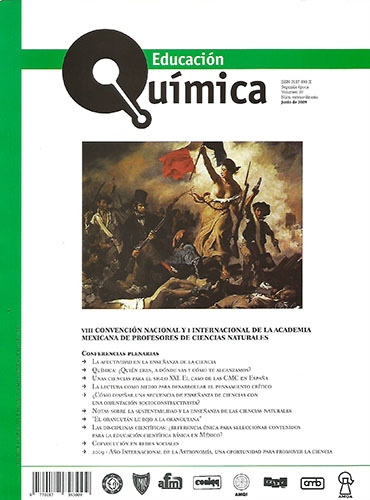Las disciplinas científicas: ¿referencia única para seleccionar contenidos para la educación científica básica en México?
Contenido principal del artículo
Resumen
En muchos países se ha promovido la educación científica en los niveles básicos de educación. Investigadores educativos, científicos, especialistas en desarrollo curricular, psicólogos, profesores y pedagogos han participado en los procesos de reforma curricular, en su diseño, puesta en marcha y evaluación. Se han otorgado muchos recursos para las reformas curriculares y la capacitación de los profesores; sin embargo, los resultados en la formación de una cultura científica básica en la población han sido mínimos. En México, en los últimos 40 años se han realizado cuatro reformas educativas en la educación básica. Todas ellas han centrado sus esfuerzos en la elaboración de planes y programas de estudio y libros de texto, y en la capacitación de los profesores para el manejo de estos programas y materiales. Los procesos de reforma han estado estrechamente ligados a los tiempos y procesos, esto ha impedido llevar a cabo proyectos de investigación y desarrollo curricular para la educación básica, que permitan a largo plazo contar con propuestas educativas coherentes y de calidad, para mejorar la educación que se imparte a los niños y jóvenes de nuestro país. Hasta ahora no existe una evaluación seria de los resultados de estas reformas.
Detalles del artículo
Citas en Dimensions Service

Educación Química por Universidad Nacional Autónoma de México se distribuye bajo una Licencia Creative Commons Atribución-NoComercial-SinDerivar 4.0 Internacional.
Basada en una obra en http://www.revistas.unam.mx/index.php/req.




